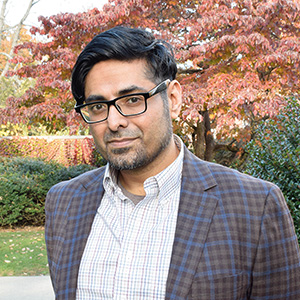The double degree effect. Meet the experts: Catherine Pereira Villa, Universidad de La Sabana, Colombia

CATHERINE PEREIRA VILLA is Associate Professor and Dean of the International School of Economic and Administrative Sciences at Universidad de La Sabana, Colombia.
Catherine has researched and written about international trade, business legitimacy, Business and Human rights, and has teaching experience in those fields. In addition, Catherine has published several book chapters and articles in academic journals and acted as head of two top ranked research groups in Colombia.
Prior to joining La Sabana, Catherine served as Head of Economic Research and Intendent for Private and Public pension funds’ Supervision at the Financial Superintendency in Colombia, Vice President of Finance at the National Institute for Social Security, as well as founding partner of a company that pioneered the commercialisation of cellphone communication products in the country.
She holds an M.A. in Economics and International Relations from the University of Aberdeen, an M.Sc. in Economics and M.Phil. in International Finance from Glasgow University in the United Kingdom and holds a DBA.
Catherine is also a member of the International Advisory Board of the Faculty of Economics of Università Cattolica del Sacro Cuore 2021- 2022, as well as the International Advisory Board of Kedge Business School in 2022. Catherine is also a member of EFMD Accredited Committee and the EOCCs Board at EFMD since 2022.
How has the increased interest in establishing Double Degree programmes stimulated stronger relationships between institutions?
The terms Joint and Double Degrees are used to refer to articulation agreements between programmes, particularly between two undergraduate programmes or an undergraduate and a postgraduate programme which involves two universities and on occasion a third one. Another way to understand joint and Double Degrees is that the student reads at the same time courses that lead to two awards of the same academic level or simultaneously for an undergraduate and a master’s degree.
The importance of offering Joint/Double Degree programmes lies in the added value perceived by students in their academic and professional development, related to the enhancement of global competencies, the strengthening of a second or third language, and the consolidation of a worldwide professional network.
The development of Double Degree programmes involves a high degree of trust and commitment between institutions since they come together to: offer unique and complementary programmes to their students; work hand in hand in the revision of their curricula, academic and professional benefits, as well as to articulate budgets for two degrees. Once these aspects are reviewed, the result is a smooth credit transfer system in which students can choose to enrol in a specific academic pathway with flexibility and the certainty of the value added of each programme.
The long-lasting relationship between La Sabana and Università Cattolica del Sacro Cuore demonstrates how two high quality institutions of higher education from different regions of the world can work collaboratively for the benefit of their students.
The specific form of this collaboration is detailed in memorandums of understanding (MOU) as well as specific cooperation agreements. Students from a diverse set of La Sabana's undergraduate programmes such as Management, Psychology and Communication have been able to complete their studies abroad with a Double Degree with a Master's from Università Cattolica del Sacro Cuore. These graduates have succeeded in building a truly international profile that has given them a competitive advantage in the labour market, a wide professional network, and personal development which is part of the mission of both Università Cattolica and La Sabana.
Article featured on Worldbound, edition n.8-2023.




